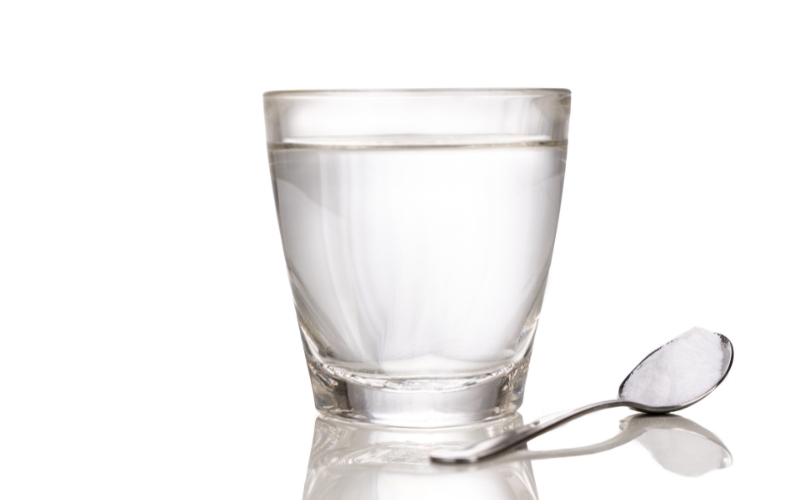1520 Green Oak Place, Suite B Kingwood, Tx 77339
Is Salt Water Good for Periodontal Disease?

Saltwater has long been hailed as a traditional home remedy for gum problems. Its antimicrobial properties make it effective in reducing inflammation and combating bacteria in the mouth. Rinsing with a saline solution can help alleviate symptoms such as swelling and tenderness, making it a simple yet beneficial addition to oral hygiene routines. But is salt water good for periodontal disease? Let’s find the answer in this article.
Benefits of Salt Water for Gum Health
1. Antimicrobial Action: Salt water acts as a natural disinfectant, reducing the population of harmful bacteria in the mouth that contributes to gum disease.
2. Reduces Inflammation: Its anti-inflammatory properties help soothe swollen and irritated gums, relieving discomfort associated with gum problems.
3. Promotes Healing: Salt water rinses can accelerate the healing process of minor gum injuries or irritations by creating an optimal environment for tissue repair.
4. Cost-Effective: Salt water is a low-cost and readily available alternative to commercial mouthwashes for maintaining gum health.
5. Easy to Use: Incorporating salt water rinses into daily oral care routines is simple and convenient. They require only a mixture of water and salt for practical use.
Limitations of salt water
1. Limited Efficacy Against Advanced Gum Disease: While salt water is good for managing mild periodontal disease, it may not be sufficient for treating advanced stages of gum disease, such as severe periodontitis, which often requires professional intervention.
2. Temporary Relief: Saltwater rinses temporarily relieve symptoms like inflammation and pain but may not address the underlying cause of gum disease or provide long-term solutions.
3. High Concentrations Can Cause Irritation: Using salt water in high concentrations or too frequently can lead to oral tissue irritation or dryness, exacerbating gum problems rather than alleviating them.
4. Not a Substitute for Professional Care: Saltwater rinses should complement rather than replace professional dental care. Neglecting professional treatment can allow gum disease to progress unchecked.
5. May Not Address All Oral Health Needs: While salt water can benefit gum health, it doesn’t address other important aspects of oral hygiene, such as plaque removal or cavity prevention, which require comprehensive dental care routines.
Salt Water Rinse Recipe and Instructions
1. Ingredients:
– Warm water
– Salt (preferably non-iodized)
2. Instructions:
1. Pour 8 ounces (about 240 milliliters) of warm water into a clean cup or glass.
2. Add approximately 1/2 to 1 teaspoon of salt to the warm water. Stir well until the salt is completely dissolved.
3. Gargle or swish the salt water solution in your mouth for about 30 seconds to 1 minute, making sure to reach all areas of your mouth, including between your teeth and along the gumline.
4. Spit out the salt water solution into the sink.
5. Repeat steps 2-4 if desired, using the remaining solution.
3. Frequency:
– Rinse with the salt water solution 2-3 times daily, preferably after brushing your teeth.
– It’s important not to overdo it; excessive rinsing may lead to oral tissue irritation.
Wrap Up!
In conclusion, salt water rinses are a valuable supplementary treatment for optimal gum health that can be beneficial for periodontal disease. As advocated by Dentist Kingwood, these simple yet effective rinses offer relief from inflammation and aid in combating bacteria. Combine salt water rinses with regular brushing, flossing, and professional dental visits for comprehensive oral care. Experience the refreshing benefits of salt water rinses today and elevate your oral hygiene routine! Visit Dentistry Of Kingwood for personalized dental care and embrace a healthier smile.






